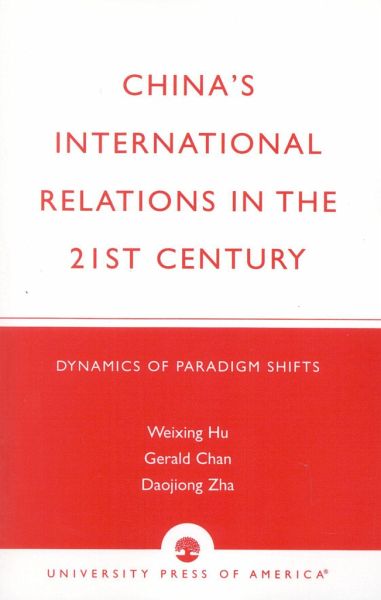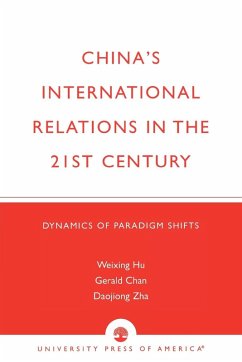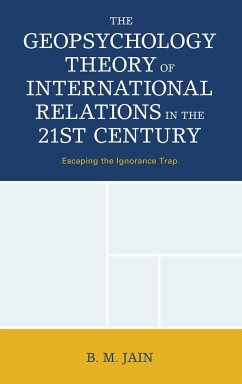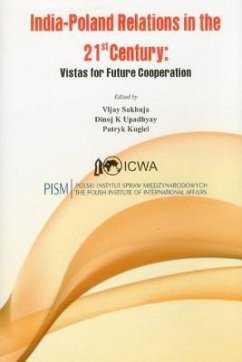Nicht lieferbar

China's International Relations in the 21st Century
Dynamics of Paradigm Shifts
Versandkostenfrei!
Nicht lieferbar
Most people believe China's foreign behavior is driven by its growing power status in world politics. Chinese leaders still firmly uphold some traditional values in foreign policy such as sovereignty, territorial integrity, and national unification. However, it is often neglected that China's behavior is also shaped by its changing perception of the globalizing world and, to a large extent, is a result of external pressure on China. By examining the dynamics of paradigm shifts in China's foreign policy thinking, this book explores the ideological sources of China's international relations in t...
Most people believe China's foreign behavior is driven by its growing power status in world politics. Chinese leaders still firmly uphold some traditional values in foreign policy such as sovereignty, territorial integrity, and national unification. However, it is often neglected that China's behavior is also shaped by its changing perception of the globalizing world and, to a large extent, is a result of external pressure on China. By examining the dynamics of paradigm shifts in China's foreign policy thinking, this book explores the ideological sources of China's international relations in the new century. With growing economic interdependence with the outside world, which creates both constraints as well as incentives to adapt to the prevailing norms in contemporary international relations, authors of this volume analyze indigenous Chinese sources of intellect on the paradigm shifts. The concepts studied in this volume include national identity, nationalism, globalism, multilateralism, sovereignty, and the role of international law in Chinese foreign policy. This volume helps to shed new light on how the dynamics of paradigm shifts affect China's behavior in international affairs.













